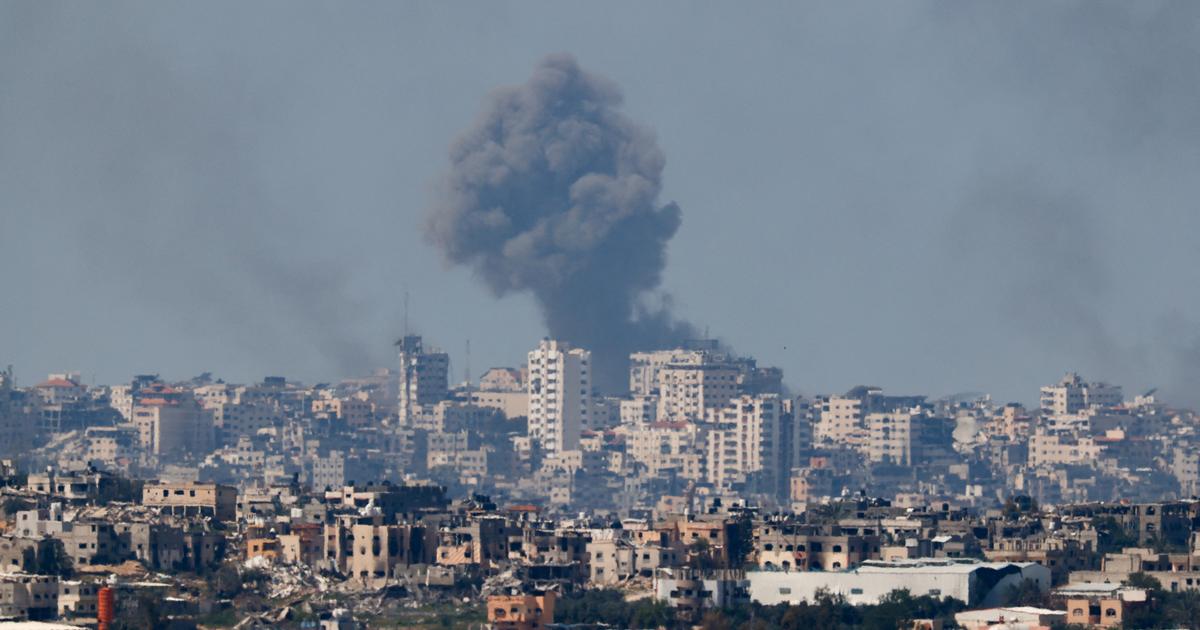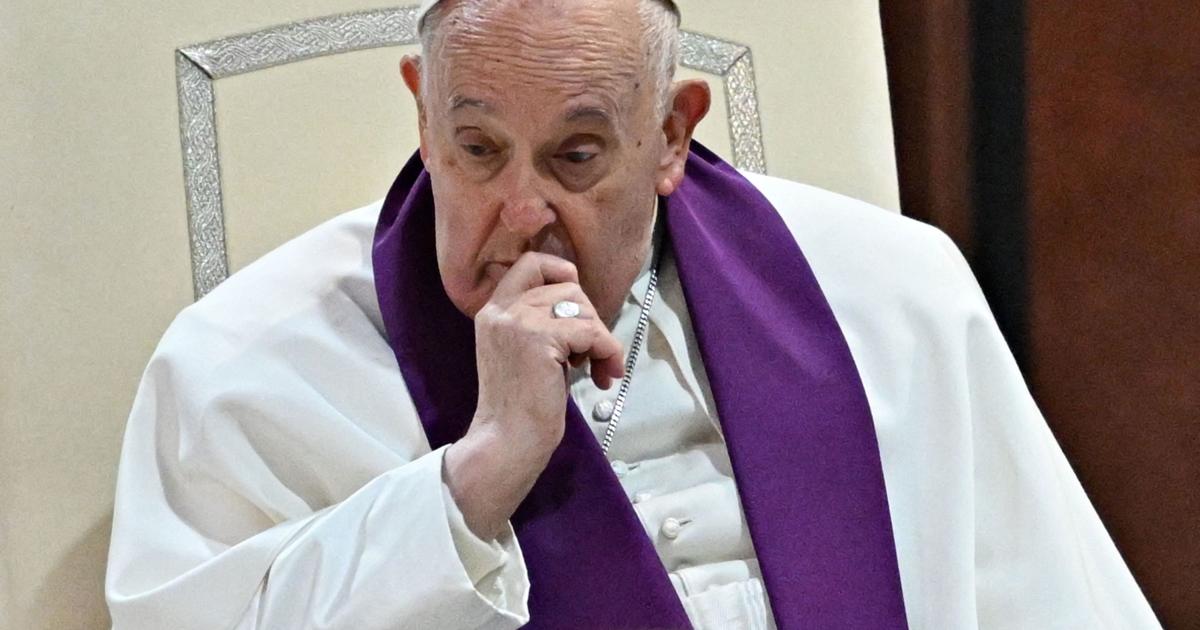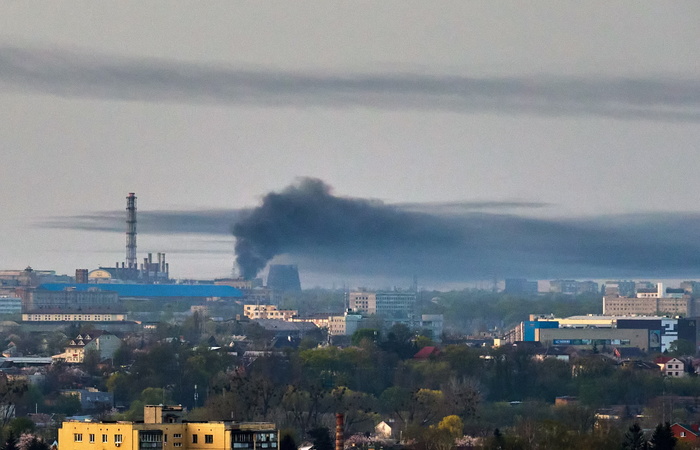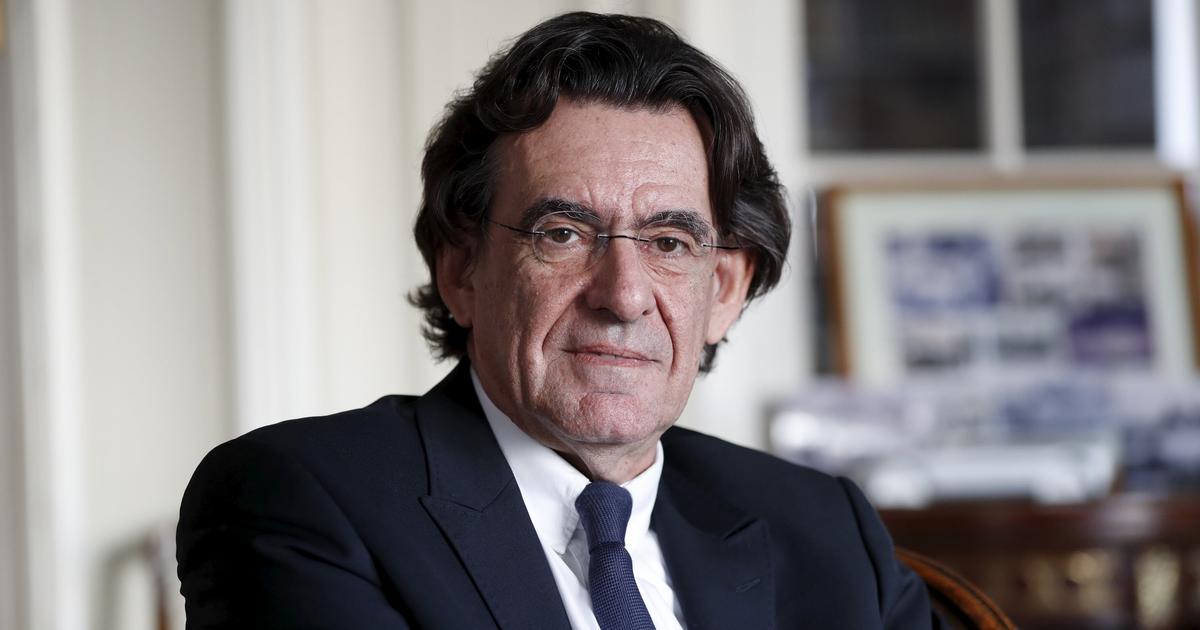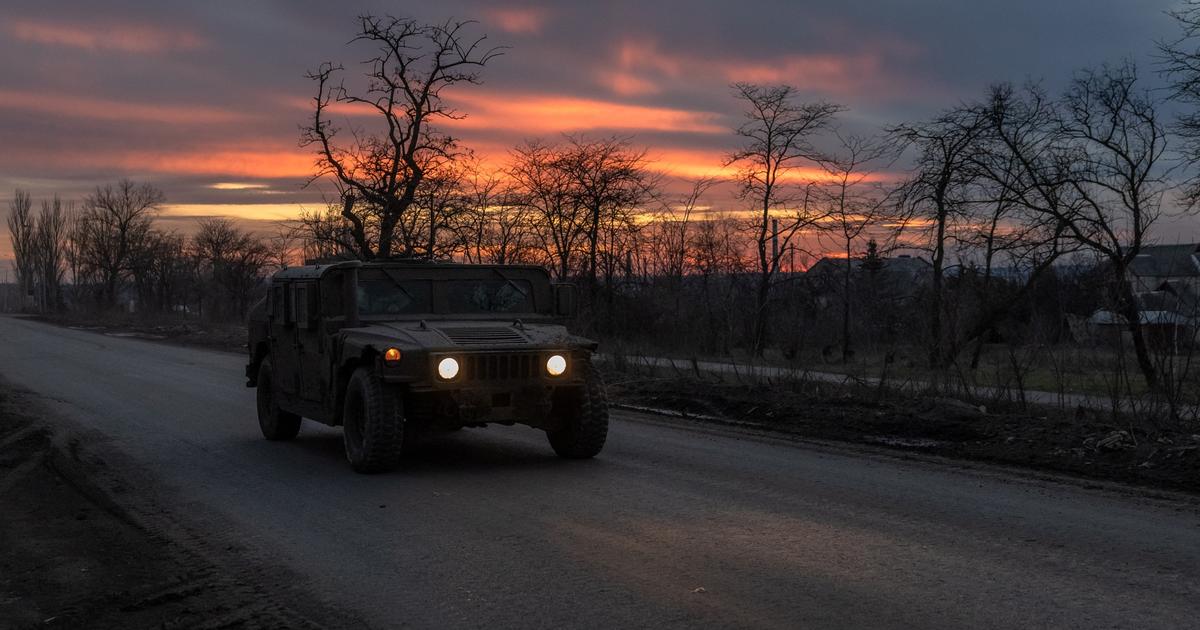Marina wanted all her life to be a Jewish mother with many children.
With her first husband, she gave birth to only two children, then remarried and gave birth to three more.
Raising five children in a small town in the heart of Russia, in the Ivanovo district, about five hours' drive from Moscow, is no small thing.
And here, today, when she is 62 years old, Marina has to face a new and unexpected challenge: about a month ago, her son Ilya, 25 years old, the fourth of the five children, was drafted into the ranks of the Russian army as part of the mass recruitment that was announced at the end of September following the entanglement of the war in Ukraine.
"Ilyusha (Ilya's affectionate name; AB) received the conscription order like all the men in our settlement," says Marina, struggling not to reveal her great concern to her son.
50 of us were recruited.
Most of them are young, but in the initial screening they also took older men.
These later returned home, so that only the young remained in the army, including some who had just recently finished their mandatory service in the Russian army, which lasted a year.
They were released and recruited again.
They sent Ilyusha to a military school, for basic training, and then for additional training in the Moscow region.
He is not in Ukraine yet.
When he has time we talk.
We mostly correspond by text messages.
"I'm not the only one who worries about him. Neighbors and friends are thinking about him, but what can they do to help me? I'm not able to answer everyone. Sometimes I ask that they don't call and leave me alone. My family has lived in central Russia for decades. They didn't suffer the threats of World War II . Only one of my grandmother's brothers enlisted in the Red Army and became a hero of that war. Apart from him, wars did not touch us. Until now. What more can I say about my feelings? I am a mother. Mothers only think about their children. I worry."
A short climb
It is not easy to locate Jews who were recruited into the Russian army as part of Presidential Order No. 647 for the recruitment of 300,000 soldiers, in view of the increase in the Ukrainian counterattack against the Russian forces in the eastern parts of Ukraine, which were occupied by Russia and annexed to it.
Many of those I spoke with during my stay in Moscow - Jews and non-Jews alike - admitted to me that they experienced this government move as a real trauma.
The Russian chief military rabbi knows about two young Jewish men who were recruited, one of them Marina's son.
The main work of the military rabbi is precisely with Jewish criminal prisoners in the prisons, and not with Jewish soldiers who need religious services.
However, since many Jews in Russia are not connected to community frameworks, hide their Jewishness or are less interested in living as Jews, it is not impossible that the number of Jews recruited into the army is significantly larger.
Certainty only exists regarding the fact that quite a few Jewish men - as well as many non-Jewish Russians, hastened to leave Russia to avoid the possibility of finding themselves sent against their will to a war, the end of which no one currently sees.
Anyone who held Israeli or other citizenship or an entry visa to any Western country and could pay the astronomical flight prices that soared into the sky overnight fled Russia.
Others made their way by car or train to countries neighboring Russia: Georgia, Armenia, Kazakhstan, even Mongolia, and crossed the border as long as the control of the passage there was not increased.
In the Jewish communities in Russia, there is talk of an atmosphere of general panic, which was created following the announcement of the mass conscription, which calmed down immediately after it was announced that the conscription had ended.
And yet, the fear of another mass recruitment hangs in the air.
Young Jews who fled to neighboring countries, often without the financial means to enable them to stay abroad for a long time, are now flooding the offices of the various communities with requests for help.
Some of those who left for Israel returned.
Others want to quickly arrange for themselves Israeli citizenship now as a guarantee for future negative developments in Russia.
They are not necessarily thinking about settling in Israel, but about what they call a "short immigration": moving to Israel and returning home as soon as things calm down and settle down.
Despite the freezing cold that struck without warning in the last few days, a long line of citizenship applicants at the entrance to the Israeli consulate in Moscow stretches into the evening.
Leaflets from law firms are distributed in Jewish stores, offering their services in obtaining Israeli citizenship and detailing all the benefits granted by Israeli citizenship and passport - including good and cheap health care and visa exemption for European countries.
If you want no fairy tale.
Valeri, a young Jewish man in his 20s, told me that he submitted the documents to obtain Israeli citizenship as early as March and to this day, eight months later, he has not received an answer.
He works in high-tech and also in the field of organizing events and parties, and has absolutely no intention of immigrating to Israel.
But, according to him, you never know what the day will bring and it is better to be prepared for every possibility.
The news about the changes that some of the parties of the future right-wing coalition in Israel are asking to introduce in the Law of Return regarding the grandchildren section, has not yet been widely disseminated here.
Ilya, Marina's son, can consider himself lucky to have received military training before being sent to Ukraine.
Dima, a non-Jewish academic, in his late 20s, tells me with a storm of emotions about two of his best friends, from school days, who were recruited and sent to the front without significant training and met their deaths in Ukraine.
"They were sent as cannon fodder", he is furious and says that the mothers of the two are emotionally devastated.
Although the mass mobilization was mainly held outside the big cities, it included them as well.
The Iron Curtain is back
Like many young people in Moscow, Dima wants to leave Russia as soon as possible.
To the USA, to Europe, to any destination that will allow him to build a safe and calm future for himself. These young people are ready to travel for hours and hours to neighboring countries in order to obtain the coveted and difficult-to-obtain entry visas at the various embassies. Others spend their savings on long vacations in countries that do not require visas from Russians - Dubai, Egypt, Thailand, Indonesia The main thing is to get away from the depressing atmosphere at home.
"Our parents remember the days of the Soviet Union," says Ola, an activist in a Jewish organization in Moscow, "even then life was conducted in complete isolation from the West, as is happening more and more today.
In recent years we have all gotten used to going on vacations in the Baltic countries, to cheap shopping trips in Finland, to spending time in Italy and France.
Now it seems that the wheel of time has turned on its tracks and gone back.
The West is closed to us again.
And there are the sanctions.
Although I must admit that there are positive points in the current situation: is it not possible to go to Europe?
So we rediscover the wonderful tourist sites in Russia.
Did they close IKEA for us?
We reveal the qualities of the traditional Russian furniture industry.
We can also eat our good fish, which used to be exported to the USA. As a matter of fact, there is also a replacement for the stores of the Western fashion brands, which have closed.
You can order everything online, even if the prices are slightly higher.
There are ways to circumvent the sanctions by importing products from neighboring countries, and rumors say that the stores of the brands that were closed continue to do business behind bars.
Their owners are not ready to give up the Russian market so quickly.
China, Russia, Arab countries - that's where the luxury brand manufacturers get most of the money.
Not the German or British housewives."
Exhibition behind fences
The last two weeks, when I was in Moscow, were full of dramatic developments surrounding the war in Ukraine, which seems to have entered a new phase with the deployment of winter: the Russian withdrawal from the capital of Kherson province to fortification lines along the eastern bank of the Dnieper River, the massive Russian aerial bombardment of infrastructure across Ukraine that paralyzed the electricity supply in the country, and the saga of the missile that landed in Poland, which in its early stages seemed to bring a world war closer, until it turned out that it was a Ukrainian missile.
Added to all this was the Dutch court's determination that a Russian missile and Russian-related factors are behind the Malaysian plane crash over Ukraine eight years ago, in which about 300 people died.
But with the exception of billboards reinforcing the hands of the Russian military, a few closed Western shops and endless television programs on the frontlines in Ukraine, the distant war is not felt outside Moscow - now that the horror of mass conscription has subsided.
In the tourist areas around the Kremlin and the Red Square, preparations are already being made in full force to welcome Christmas, with the most extravagant lighting compared to the pale in Europe, which shows to all that Russia does not suffer from any energy shortage.
The tourism that comes to the Russian capital now is mainly domestic tourism and from countries that do not boycott Russia - China, India, South America.
Businessmen from these countries also fill the main hotels, where conferences are constantly held on every possible topic.
The prestigious shopping centers and luxurious restaurants in the City of Moscow are bustling and crowded.
The same goes for the stores of the American hamburger chain McDonald's, which was replaced by a local chain "Tame and it".
And it is indeed delicious, from personal experience.
On the walls of the large "Manj" exhibition hall, near Red Square, I surprisingly notice the flag of Ukraine.
seemingly.
The blue sky and golden wheat fields - the colors of the Ukrainian flag - appear on advertising signs for the large exhibition, now on display at the venue, under the title "Ukraine - End of an Era".
The entrance to the hall is surrounded by iron fences, and those wishing to see the exhibition go through very strict security checks by police officers.
In the exhibition halls, the official Russian version of the roots of the war in Ukraine, from the Middle Ages to the present day, is presented in a historically qualified manner.
The cooperation of the "Ukrainian people", which was invented in the 19th century by "Austrian and German historians", with Nazi Germany, and its honor is still received there by the nationalist leaders who worked with the Nazis, receives special emphasis.
This is the basis for justifying the war with the need to "de-Nazify" Ukraine.
I tell the Serbian student who will accompany me as a guide throughout the exhibition, that I am Israeli.
He lingers with me especially near the Ukrainian textbooks, which glorify the work of the nationalist collaborators, and near photographs of Ukrainians joyfully welcoming the German occupiers.
To increase my sense of the same destiny between the Russians and the Israelis, he explains to me with impressive knowledge why, in his opinion, there is a parallel between the fighting of the Ukrainians and that of Hamas in the Gaza Strip.
"It started with their targeted attacks against population centers in the Russian-speaking parts of eastern Ukraine, to carry out ethnic cleansing, and continued with their use of the Ukrainian population during the war as human shields. They attack from population centers to make the Russians retaliate and cause civilian casualties, so that Russia can be accused of committing crimes War. Like the Palestinians," the delicious.
The last hall in the exhibition is dedicated to the heroes of the "military operation", as the war is officially defined, who were killed in Ukraine.
The exhibition attracts a fairly large and diverse audience, including high school students who are brought here in groups.
In some military museums I visited I also saw many young visitors, including children, some of whom came with their parents.
It would be a mistake to think that the entire Russian population, or most of it, opposes the war in Ukraine.
There are those who no longer turn on the Russian television, because they no longer want to hear the pro-war government propaganda.
There are those who actually consume it eagerly.
"Anti-Semitism? It's propaganda"
The Jewish community in Russia deliberately refrains from expressing any support for the war and firmly denies the existence of pressure from the government in this direction, or refrains from expressing a critical opinion.
However, there are quite a few community members who place the responsibility for the outbreak of the war on the West, and especially on the United States, who in their words pushed Putin into a corner, which forced him to respond in order to protect his country's national interests.
Even in the world of the Jewish community - which, according to the latest government population registration carried out in 2010, numbered approximately 156,000 people, but estimates of its true size range from 80,000 to a quarter of a million, and perhaps even a million according to the Law of Return - there is a clash of civilizations between the liberal-progressive left, who wishes to promote his values in the bosom of Russian society, and the conservative right who sees this approach as an attack on his traditional values.
"Beyond that," emphasizes a community member who wishes to remain anonymous, "some people present Putin as a monster. But they don't ask themselves what will happen after him. Who will take power? Maybe it will be a more nationalist factor? Maybe Russia will sink into anarchy like in the years -90? And if Russia disintegrates? Do the West ask themselves these questions? We have already experienced severe economic crises after the communist era. Periods when the value of the ruble collapsed within a day and prices increased greatly. Crisis and calm, another crisis and another calm, again crisis and again calm Almost like in Israel.
Ilya, a 43-year-old lawyer and mediator, who owns an independent office, represents the renewed face of the Jewish community in Russia.
Like many other Jews, who grew up completely secular, he found his way back to religion in a process that began five years ago.
"Judaism contributed to my life," he says, "it gave me wisdom to deal with life."
Ilya believes that the pro-Jewish policy of the Russian government, which became very strong under Putin and is reflected in the renewed flourishing of Jewish life in the country, brings many people like him to be interested in Judaism, and through them other relatives also find their closeness to Judaism.
The administration, he emphasizes, also strengthens other religious communities, including Islam.
Not far from the Jewish Center in the Maria Rusha neighborhood, in northern Moscow, is the "Cathedral Mosque" - Russia's main mosque, which was inaugurated in 2015 in the presence of Putin, Turkish President Recep Tayyip Erdogan, and Palestinian Authority Chairman Mahmoud Abbas. 10,000 people can pray In the huge mosque Unlike in Western European countries, Russian Jews do not complain about attacks by the local Muslims.
"The emphasis in Russia on religious identity stands in complete contrast to the situation in Western Europe," he says, "where traditional values are not adhered to, and look at their situation. President Putin maintains good relations with the religious leaders. In his eyes, traditional values are a good basis for the country. We maintain These values, while in Europe they are being erased. In Europe and the US they want to make Russia similar to them, to rule here a culture of 'one parent and another parent'.
It doesn't suit our character.
We oppose this culture and do not want it here."
Ilya also believes that the American administration aims for a conflict between Russia and the countries with which it had good relations, including Ukraine.
"Most of the people here have relatives in Ukraine," he says, "I was born in Moscow, but my father came from Ukraine and every summer we used to vacation there. We never felt like it was a foreign country. We need to end this war as soon as possible, do everything for it to end."
Does he, who wears the kippah and wears the tassel, feel anti-Semitism because of the war, because of Zelensky's Judaism?
"Not at all, not even my three children feel any change at school since the war, I asked them. All the stories about a wave of anti-Semitism here are anti-Russian propaganda."
Jewish refugees are taken in
In contrast to Moscow, in the city of Rostov in southern Russia - about 650 km from the border with Ukraine - the war is well felt. The airport in the city was closed, fearing that planes would fall into the range of fire of the warring parties. The local Jewish community, with its 15 thousand members, took in hundreds of Jewish refugees who came from the Donbas region and most of them continued on - to Israel, to Germany, but also quite a few members of the community of Rostov left the city and Russia.
Still, the positive change in the situation of the Jews in Russia today is evidenced by the story of the "Soldier's Synagogue", which was established in the city in the second half of the 19th century.
Tsar Nicholas I, the "Iron Tsar" who ruled in the years 1825-1855, instituted an anti-Jewish policy designed to bring about assimilation and reduce the number of Russian Jews.
"Among other things, he passed a law that allowed Jewish children to be taken from their families, re-educated in order to keep them away from Judaism and enlist them in the ranks of the Russian army for 25 years of mandatory service," says Rabbi Menachem Danziger, rabbi of the "Soldier" Synagogue.
"When some of the soldiers returned to Rostov at the end of their military service, they didn't know much about Judaism and didn't feel comfortable in the existing synagogues, so they built their own synagogue, hence its name."
Today, religious Jews can obtain an exemption from military service because of the need to maintain their religious traditions.
"I don't know of anyone from our community who is currently being drafted into the army," says Rabbi Danziger, born in Canada, "It is also difficult to estimate how many Jews have left Rostov since the beginning of the conflict in Ukraine. This is undoubtedly a difficult time. People are full of worries about their future. The young men, aged 35- 20, were the most worried. Quite a few Jews from Rostov traveled to Israel to obtain citizenship and returned here. Most of the community members remained here, either because they have no possibility of leaving for other places, or because they are connected to Rostov. The Jews here are strong people. They hope that the situation will improve.
"Our main problem is a significant drop in donations, which allow us to provide services to community members and refugees. Some of our major donors are now on the Western sanctions list. Others are directing their donations to efforts to help communities in Ukraine.
"But," continues the rabbi, "Russian Jews are also suffering. There are many - old people, families with many children - who need food, medicine, health care. People have lost their sources of income. About 40 percent of our community members need immediate support. 2022 No Jew should be hungry. We started cooking hot meals in the synagogue and sending them to the homes of the needy.
"I am very proud of my community, that during these difficult times, instead of closing in on itself and its problems, it did everything it could to help the Jewish refugees from Donbass - finding places to live, providing regular food, providing medical treatments. It was heartbreaking to hear what those refugees, some of them survivors Holocaust, past. We currently have 50 refugees that we care about. They usually come here with nothing - no money, no documents. There are places in Russia where people don't want to hear about refugees. We don't treat them as refugees, but as friends, family We want peace, pray for peace and hope it comes as soon as possible."
In Rostov is buried the fifth rabbi of the Lubavitcher Chabad dynasty, Rabbi Shalom Dober Schneerson (RSHA), who moved his residence to the city during the first Jewish War, made it the "Capital of Chabad" for several years and died there.
Another decision of the Rabbinate is currently used as a pretext for another legal war concerning Russia: upon moving to Rostov, the Fifth Rebbe decided to transfer the large collection of family holy books, which includes at least 12,000 books, to storage in Moscow.
With the outbreak of the Bolshevik Revolution, the collection was seized and transferred to the Lenin Library.
release the treasure
After the fall of the communist regime, the efforts of the Lubavitcher Chassidim to transfer the nationalized collection to the Chabad library in the USA were unsuccessful, despite court rulings on the matter.
The government in Russia treats the collection as a "national treasure", and as a compromise decided to deposit a large part of it in a branch of the Russian National Library established at the Museum of Judaism and Tolerance in Moscow.
This museum, one of the most popular in Moscow, was established exactly a decade ago by some of the leaders of Chabad in Russia - the president of the Federation of Jewish Communities, Rabbi Alexander Boruda, the chief rabbi of Russia Berel Lazar, and the publisher and chairman of the board of directors of the museum, Baruch Gorin.
So apparently the collection was handed over to Chabad.
But Chabad USA is not satisfied with this compromise and has filed a lawsuit against the Russian government in the Jerusalem District Court, in an attempt to seize Russian assets in Israel and thereby oblige the Russian government to respect a US court ruling in favor of transferring the collection from Russia. As part of the celebration of the tenth anniversary of the Jewish Museum - which was modest following the war - the most important books in the collection were presented to the general public, including me. By the way, at the top of Chabad in Moscow they do not rule out the possibility that the continued struggle over the collection may contribute to the creation of an anti-Semitic atmosphere in Russia, nor do they rule out that this was the background to the document authored by a senior member of the council The Russian National for National Security in which the Chabad movement was defined as a sect, which "advocates superiority over other races".
A guard at the Tomb of the Unknown Soldier in the Kremlin, photo: Eldad Beck
The Russian government went out of its way to calm the storm that erupted following this assertion.
In the report of the anti-Semitic incidents of the Russian Federal Agency for Ethnic Affairs, it appears among the five most serious anti-Semitic incidents recorded since the beginning of 2022 and which came to the attention of the general public. "Since the beginning of the year, only 32 anti-Semitic incidents have been recorded, almost all of them on the Internet," says Oleg Sirutin, one of the agency's senior officials, " We have been monitoring anti-Semitic incidents since 2017. At a recent conference against anti-Semitism held by the Russian Jewish Congress, other statistics emerged regarding the dimensions of the phenomenon from Jewish organizations that carry out their own monitoring.
32 events for a big country like Russia is very little.
Unfortunately, other population groups face much greater hostility, especially Central Asian immigrants and refugees.
Therefore, we are sure that there is no significant anti-Semitism problem in Russia."
It doesn't concern them
At the Jewish school "Mir Intellect" I meet with a group of teenage boys and girls to hear their opinion on the existence of anti-Semitism in Russia and their plans for the future in the shadow of the war.
Nicole is 14 years old, Aryeh Liv is 16 years old, Yafim is 15 years old, Jacob recently celebrated a Bar Mitzvah and Lior is also 16 years old, and returned with his father to Moscow from Israel last summer.
All of them were born in Moscow, all of them have not encountered anti-Semitic phenomena in their lives - even when they are with their non-Jewish friends, and most of them do not intend, as of now, to immigrate to Israel - for various reasons: the differences in mentality, the cost of living in Israel and the strong personal connection to Russia.
Lior, who lived for a long time in Israel, is the only one who is seriously thinking about serving in the IDF and living in Israel. "Military service in Russia will not be a problem for me because I am religious," says Aryeh Liv, "because I keep Shabbat and tradition I will not be drafted, which is good because I pacifist.
I also don't feel that I should serve in the IDF."
"Maybe I will immigrate to Israel in ten years", estimates Yafim, "first I want to get a good education here in Russia, go to university and travel around the world."
"It's easier to be a Jew here than in Israel," says Lior, "in Israel it's more difficult to keep the tradition. Here people go to the synagogue, pray. Although in Israel I felt more free as a Jew. Here you can't walk around wearing a kippah outside the synagogue."
"I have never felt discriminatory treatment here in Moscow as a Jew," responds Aryeh Liv, "It is an international city. People do not treat others' origin or religion in a special way."
"Non-Jews are very curious about Judaism," says Nicole from her experience.
Also Yaakov - the youngest in the group, who does not think at all about Aliyah to Israel, has never encountered anti-Semitism, according to his own words.
Everyone agrees that the war in Ukraine has so far not caused any change in their lives.
All of them also share the desire to see a quick end to the war, as far away and without impact on their lives as it is.
were we wrong
We will fix it!
If you found an error in the article, we would appreciate it if you shared it with us

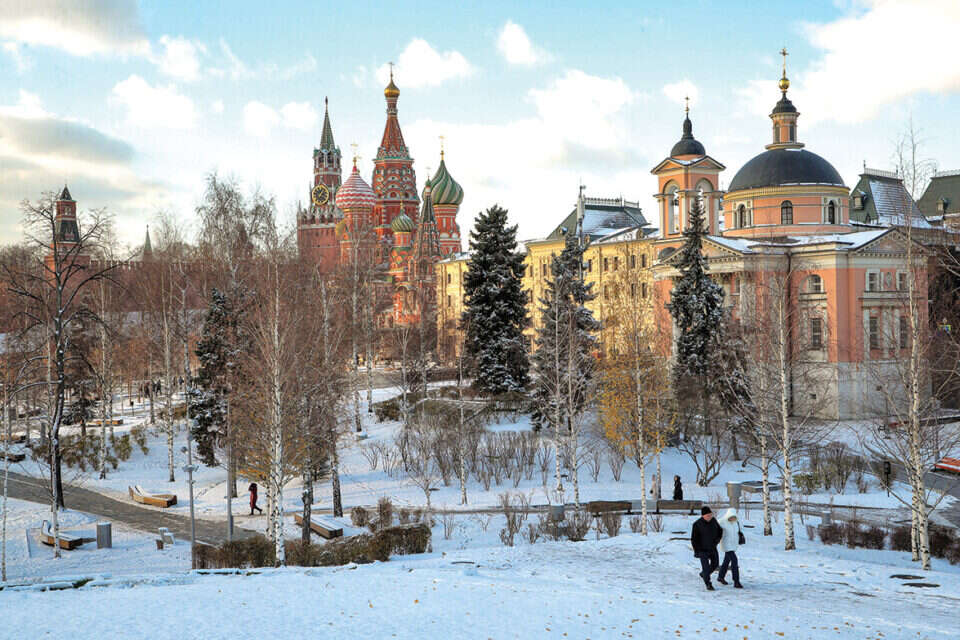


/cloudfront-eu-central-1.images.arcpublishing.com/prisa/A6GAVFRI7NHOXASTFVQN2E6XT4.jpg)
